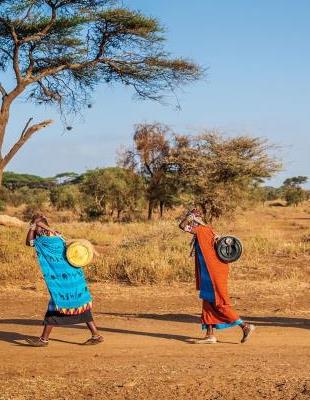It’s now almost a year since COP26; the 26th meeting of representatives from the countries that signed the United Nations Framework Convention on Climate Change and the first time that the conference was held in the UK. In November 2022, the 27th Conference of the Parties to the UNFCCC (COP27), the next round of UN negotiations on how to tackle climate change, will take place in Sharm el-Sheikh in Egypt. Heads of State, ministers, and negotiators, along with climate activists, mayors, civil society representatives and CEOs will meet for the largest annual gathering on climate action.
An outcome of COP26, held in Glasgow in 2021, was the Glasgow Climate Pact. This included a ‘series of decisions and resolutions that build on the Paris accord’ and set out the actions needed to tackle climate change, importantly re-emphasising the critical need to stay within a 1.5°C global temperature increase. However, most of the commitments are self-policed with only a smattering of pledges being legally binding. Coupled with the war in Ukraine, the lingering impact of the global health pandemic and the political turmoil we have seen recently in the UK, it has been a challenging year since COP26 closed. So has there been any marked progress in the last 12 months?
COP 26 Headlines and Commitments
One of the key outcomes of COP26 was raising the ambition of the NDCs (Nationally Determined Contributions) to align with limiting the global temperature rise to 1.5°C; a long-term goal set by the Paris Agreement in 2015. Prior to Glasgow, 120 countries submitted NDCs which, if fully implemented, would limit global warming to 2.4°C by the end of the century. The agreements and contributions made in Glasgow were considered, again if fully implemented, to limit warming to below 2°C, with commitments to further action over the next decade keeping 1.5°C in reach.
However, since COP26, only 24 countries have submitted updated NDCs. Developing nations account for 20 of these, with 7 of them on the UN’s list of least developed countries (Niger, Sudan, Haiti, Central African Republic, Mozambique, Uganda, Democratic Republic of the Congo). The Independent Climate Change Committee (CCC), at the end of COP26, commented that the UK should maintain a strong COP team with high-level leadership to drive stronger NDC commitments and hold nations accountable. However, as already noted, world events and political turmoil in the UK have reduced the effectiveness of the leadership of, and action on, the follow-on work required.
Coal
Countries including China and India committed to ‘phasing down’ coal usage. This was the first time that minimizing fossil fuel use has been referenced in a COP decision. While the original commitment of ‘phasing out’ was watered down to ‘phasing down’, this was heralded as one the main successes of COP26.
World leaders agreed to phase-out subsidies that artificially lower the price of coal, oil, or natural gas. However, no firm dates have been set. In the past year due to the war in Ukraine and the stress on energy supplies some countries are considering a return to coal or delaying its phasing out.
Fatih Birol, executive director of the International Energy Agency (IEA), said coal must be at the forefront of COP27: “The biggest risk is the growing appetite for infrastructure investments in coal. If we are not able to slow that down or stop it, we may lock in our future […] If I had to pick one issue [for COP27], that would be the one.”
Trees
A deal to halt global deforestation was one of the key outcomes of COP26. Brazil, within which 60% of the Amazon rainforest lies, was among the signatories.
Leaders from more than 100 countries with 85% of the world’s forests pledged to stop deforestation by 2030. However for many campaigners this is too little too late and they are demanding action to save the planet’s lungs sooner.
In recent months it has been reported that Brazil’s deforestation rate in the Amazon has increased to record levels. Similarly the Congo, which has one of the world’s most important remaining rainforests, has shown lack of commitment on the government’s willingness to halt logging and destruction.
Cash
The Glasgow Climate Pact pledged to significantly increase money to assist developing nations tackle the effects of climate change. During COP26 delegates pledged to give a total of $350M to assist the most adversely affected countries; however, a previous pledge to provide $100BN a year by 2020 has already been missed.
GFANZ (Glasgow Financial Alliance for Net Zero) was launched in April 2021 by UN Special Envoy on Climate Action and Finance Mark Carney and the COP26 presidency, in partnership with the UNFCCC Race to Zero campaign, to coordinate efforts across all sectors of the financial system to accelerate the transition to a net-zero global economy. While claiming to regularly submit transparent and accurate progress report towards their goals, at present it is unclear how much of that is flowing to the poorest countries that need it most. The group has also been criticised for greenwashing and being too lenient on investment in fossil fuels.
COP27, what can we expect to see?
As we have already noted, strong and immediate leadership around the globe following the close of COP26 was needed to continue to drive greater ambition in NDCs, to hold nations accountable and to see demonstrable implementation of those commitments. As Greta Thunberg tweeted at the close of COP26, “Unless we achieve immediate, drastic, unprecedented, annual emission cuts at the source then that means we’re failing when it comes to this climate crisis. ‘Small steps in the right direction’, ‘making some progress’ or ‘winning slowly’ equals losing”.
Despite the prominence COP26 had, it is likely the outcomes have not significantly changed the current trajectory of global warming. Just last week the United Nations Environment Programme (UNEP) stated that there’s “no credible pathway to 1.5°C in place” now. COP27 is being lauded as the next defining moment for climate change, coming from Africa, one region most adversely affected by the impacts of climate change by the UN. Whilst some detractors are focusing on Egypt’s questionable human rights records, querying the sustainability credentials of the location, and encouraging climate activist to boycott the event, COP27 is the next opportunity to develop greater ambition in the goals set, and greater detail on the actions which will be taken. UNEP are reiterating the call for a much faster transition to a fossil fuel-free future and rapid and lasting emissions cuts in food production industries.
We know what needs to be done and we hope that COP27 delivers a predominance of discussion on what actions are now being taken, the sharing of examples where current actions can be seen to be being translated into positive outcomes and collaborative plans to supercharge innovation to deliver solutions to the problems of climate change mitigation and adaption. In addition, the outcomes from COP27 need to demonstrate global collective ownership of the problems - and the solutions - to ensure our sustainable future.
Jane Boyle, Sustainability Advisory Lead UK & Ireland
Bruce Lascelles, UK Director, Environmental Planning & President of the British Society of Soil Science.
At Arcadis, we put sustainability and the ambition to do all we can to fight the climate and biodiversity emergencies at the heart of our work, both as an organisation and in partnership with our clients. Our sustainability expertise through our Sustainability Advisory, Net Zero Buildings, Energy Transition, Biodiversity and Climate Adaptation teams is embedded across the business and our subject matter experts are at the forefront of many disciplines.
Bruce Lascelles (UK Director, Sustainable Land Management) will be attending COP27 in person in his role as President of the British Society of Soil Science (BSSS) and Anusha Shah will also be attending in person in her role Vice President of the Institute of Civil Engineers (ICE).






